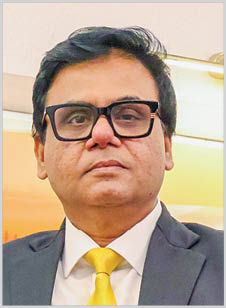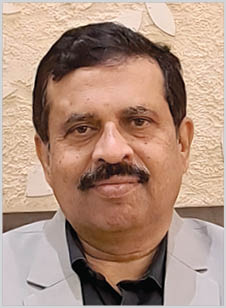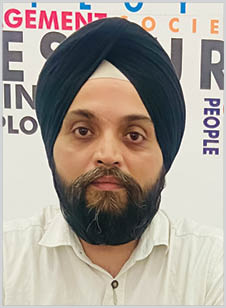Running a paper company essentially requires a diverse talent pool, demanding that the human resources department broaden its in-depth understanding of people and leave their comfort zone, while scouting talents for a workforce. This also means putting together a workforce drawn from diverse backgrounds. The question is: What does it take? It takes more than mere carrots a company can dangle.

Addressing and overcoming human resource management challenges is vital for the smooth running of any organization. The challenges faced by the HR department often translate into challenges for the entire workforce if not properly addressed, thus impacting productivity, sustainability, and profitability. The department, apparently, is responsible for workers at every stage of their employment. This means any challenge affecting the department can impact the hiring, onboarding, training, career development and performance management of employees. When it comes to human resources management in the paper and pulp industry, the list is longer.
Running a paper company essentially requires a diverse talent pool, ranging from the engineers responsible for manning and maintaining machines at the mill; the sales and marketing workforce at the branch office; to the driver ensuring timely last mile delivery of finished products. The fact that most offices are located in the cities, with easy access to talent pool, while the mills are in rural areas, where the access to talent is traditionally scarce, underlines the challenges. This demands that the human resources department in a paper or a pulp & paper company broaden its in-depth understanding of people and leave their comfort zone, while scouting talents for a workforce that can be deployed in two varied locations.
This entails inducing or facilitating reverse migration. This also means putting together a workforce drawn from diverse backgrounds. The question is: What does it take? It takes more than mere carrots any company can dangle. First of all, it takes a trust either already built or prospective, the right person and the realistic inducements. In other words, a point where the result is a win-win situation.
In human resources management, the paper industry has evolved and come a long way; the array of misconceptions often lumped with the industry, belong to a long-gone past now. Today, the mills are equipped with state-of-the-art machines and sourcing of raw materials, whether pulp or waste paper, either imported or sourced locally, is often done with extensive traceability. Moreover, there is a rush to increase their reliance on renewable sources of energy. Most importantly, how responsibly as well as efficiently the effluents are managed with the best available technologies and the progress the industry, as a whole, has made in reducing their water consumption. These manifest the need for a modern, agile as well as a diverse workforce in the age of AI.

Approach to Sourcing Talents
Our scouting process is extensive and well-planned, as we explore a wide range of options, says Mr. Ashok Varma, Vice-President and Human Resources Head, JK Paper. He claims that JK Paper partners with leading universities and institutes to attract fresh talent through internships and campus interviews. Internal mobility of talent is promoted by identifying and developing existing employees for higher roles, he stresses, and the selection process of candidates is also stringent. The company uses a mix of structured interviews, assessment centres and skill assessments to assess technical skills, cultural fit and behavioral traits of the candidates. Above all, it believes that meticulous planning is the key to its success.

For Naini Papers, the approach to talent acquisition focuses on aligning recruitment strategies with its organizational values and business goals. We leverage digital platforms, local job fairs and partnerships with educational institutions to attract diverse talent, shares Mr. Vijendra Rauthan, the company’s HR Head. “Our strong employer brand and comprehensive onboarding process have been pivotal in attracting the right candidates.”

West Coast Paper Mills’ Senior GM-HR (Corporate), Mr. Karunakar Panigrahi, informs that the company’s talent acquisition approach is aligned with its business needs and the strategy involves the use of various recruitment methods, technologies and practices. It relies on various sources of recruitment to attract talent, which includes using job portals and social media, implementing employee referral programmes, checking resumes posted online, considering past candidates and attending industry-related meetups, etc. “We also take the help of consultants for critical positions whenever required. We treat the candidates like our customers. Creating an employer brand and maintaining a transparent hiring process considering company culture has helped us to attract the right talents,” Mr. Panigrahi explains.
Hiring Where the Talent is Scarce
With mills located in rural areas apparently removed from the urban’s vast talent pools, like elsewhere, moving talents to these areas have always been associated with major challenges, which could be achieved with the huge and long-term investment. One historical case is Tata’s Jamshedpur plant, which was designed to induce talents to move. Many major industrial complexes, however, have built schools, residences, playgrounds, and done more so that employees are convinced that there are sufficient reasons to relocate.
ITC Paperboards & Specialty Papers Division maintains that operating mills in rural areas presents unique challenges in talent attraction and retention, and underlines that geographical isolation can make it difficult to reach the entire available talent pool. However, its strong employer brand and engagement, it asserts, with regional academia, helps it to overcome the challenges. Ensuring a good-quality life, including housing, healthcare, education and recreational facilities for employees and their families, helps us in retaining and attracting talent, it elucidates. “The relocation decision often involves the consideration of employment opportunities for spouses or partners, which can be limited in rural areas. However, our organization provides employment opportunities for spouses based on role fitment,” it stresses.

Mr. Amrender Singh, Head of Human Resources, Bindals Papers says that it is not as big a challenge as it was in the past. He is of the opinion that as long as the company has employee-oriented policies, work culture and a good organizational reputation, then it can easily attract a large talent pool.
Operating in rural areas presents challenges such as limited local talent pools and difficulties in relocation for potential hires, Mr. Rauthan concurs. To address these, we offer attractive relocation packages, housing facilities and invest in local community development to create a more appealing living environment, he shares.
People-Focused Culture
At times, the culture a company inculcates and how deeply it is embedded plays a big role in drawing talents. Organizations with the best company culture, apparently, can respond better to unexpected hiccups and establish an environment in which each team member can feel proud of their work.

Naini Papers claims that its people-focused culture is built on trust, transparency and continuous engagement, and it prioritizes open communication, employee recognition programs and a supportive work environment that fosters growth and innovation. ITC PSPD prioritizes a people-focused culture that emphasizes respect, collaboration and continuous improvement. It maintains transparent communication channels across all levels of the organization. To foster a culture of openness and trust, it conducts regular town halls, feedback sessions & an open-door policy, and encourages employees to voice their opinions and concerns. “Our robust recognition programs celebrate employee achievements and milestones. This includes annual recognition awards, service anniversaries, and performance-based monetary recognition, ensuring our employees feel valued and appreciated. We focus on promoting inclusive behaviours, fostering a culture that encourages courageous conversations and providing education on incidents happening in the workplace through Non-Conscious Bias Training program and ‘Inclusive hiring’ workshops. We strengthen the residency and retention of women managers through tailored development programs,” it elaborates.
In our organisation, teamwork and collaboration are highly valued with emphasis on mutual support and trust among members, says West Coast Paper. Our employees, the company highlights, often perceive the organisation as an extended family where leaders act as mentors who prioritise both well-being and professional development. Here communication culture is open, informal and frequent, fostering transparency and the exchange of ideas, it stresses. “The decision making process is often decentralised, allowing inputs from employees at various levels. We give importance to employee engagement activities. We organise various events to inculcate good employee friendly culture in the organisation. With this, we have created a congenial work environment at West Coast Paper Mills,” Mr. Panigrahi elucidates.
Employee Welfare
Employee welfare is one of the critical factors of employee retention, with the main objective being to improve employee morale, develop a better image of the company, develop efficiency, and create a satisfied workforce. In employee retention, it undoubtedly plays a pivotal role.
Bindals Papers regularly trains, it says, its employees on various technical and behavioural competencies by conducting internal as well as external training programs. “Specific training related to process and system upgradation are also done, as and when required. We recently started training our employees on SAP implementation,” Mr. Singh explains. Apart from that, it regularly hires freshers in various domains of engineering and management, who are trained ‘rigorously for a year through on-the-job training programs’.
We provide comprehensive health cover plans that include coverage for all sorts of medical conditions for employees and their families, along with wellness programs that include mental health support and fitness programs, says ITC PSPD. Its financial wellness programs include retirement planning and financial education workshops, helping employees manage their finances effectively and plan for the future. The company invests in state-of-the-art safety equipment and regular training to ensure a safe and healthy working environment for all employees. It offers contemporary housing for bachelors and families, company-managed food courts at highly subsidised prices, sports infrastructure including modern gyms, swimming pools, indoor and outdoor courts for various sports, best-in-class schools up to the 12th standard, and a fully equipped medical centre with round-the-clock doctors and paramedics.
Similarly, Naini Papers has rolled out comprehensive health and wellness programs, financial planning assistance, and family support services. Additionally, it ensures safe and conducive working conditions and provides recreational facilities to promote the work-life balance.
Watch: Top Paper Companies 2023
Upskilling The Skilled
Upskilling and reskilling employees to provide workers with internal mobility paths are also an effective approach to ensure that employees are prepared for a changed or evolving market. The approach also indicates how it looks at its human resources with a long-term perspective. We have been conducting various internal and external training programmes regularly as per the annual training calendar as a part of the upskilling programme, West Coast Paper shares. It is building a culture that supports employee’s ability to move around within the organisation. We have conducted leadership training programmes for assistant managers and above cadre employees who will be our future leaders, it adds.
“We hire a lot of engineer trainees. If you look at the numbers, we hire at least 30 trainee engineers every year and they go through the grind from the bottom of the skill level. So they go through a training process and are well-rounded as they grow in the system,” Mr Varma states. JK Paper provides training programs on the latest digitalization trends, including Generative AI and the basics of analytics. These programs, according to him, are designed to equip employees with the knowledge and skills to leverage digital technologies in their daily work and improve operational efficiency. If an employee is performing well in one unit but seeks a change, we provide opportunities for advancement by transferring them to another unit, he asserts. The company focuses on sharpening their skills and upscaling their capabilities before placing them in a new role. At the leadership level, JK Paper offers various courses to our employees. “We conduct 360-degree appraisals, assessments, and psychometric tests. These tools help employees identify their shortcomings, and our coaches and mentors assist them in overcoming these deficiencies and bridging the gaps. At JK Paper, this practice has become an integral part of our organisation,” Mr. Varma elaborates.
ITC PSPD offers comprehensive technical training programs that cover the latest advancements in mill technology, maintenance and operational efficiency, ensuring employees are well-equipped to meet industry standards. High-potential employees are enrolled in leadership development programs that prepare them for future managerial roles within the organisation, ensuring a steady pipeline of capable leaders. It sponsors high-potential employees to enrol in accredited institutions for certification courses in specialised areas such as quality control, process optimization, and environmental management. “Our digital academy offers various online courses (MOOCs) and e-learning opportunities, allowing employees to continuously upskill and stay relevant in the digital age. We have a robust recognition and rewards program for employees who actively participate in learning and development activities, encouraging a culture of continuous improvement,” it stresses.
Diversity And Inclusivity
Companies that are diverse, equitable, and inclusive are better able to respond to challenges, win top talent, and meet the needs of different customer bases. Over the past few years, many organisations have taken strides to build diversity, equity, and inclusion into their policies and hiring practices. At West Coast Paper, we give importance to diversity and inclusivity, says Mr. Panigrahi. He goes on to suggest that employees at the company feel valued, respected and empowered irrespective of their race, ethnicity, gender, age, religious beliefs, disability status and socio-economic background. He attributes it to the fair treatment the company gives to all employees and ensuring everyone has equal access to career opportunities, resources and rewards regardless of their background or circumstances. Our employees are from various parts of India and they all are part of our company’s growth journey, he adds.
Similarly, Naini Papers maintains that diversity and inclusivity are core to our organisational ethos. “We believe a diverse workforce fosters creativity and innovation. Our policies ensure equal opportunities for all, irrespective of gender, age, ethnicity or background,” state Mr. Rauthan. The company conducts regular sensitization workshops and promotes an inclusive culture through various employee resource groups.
“Two years ago, our diversity percentage was less than 3%. Since then, we have made a concerted effort to increase diversity at JK Paper. We have made significant progress in hiring and bringing female employees into roles at our head office, as well as in sales, marketing, and manufacturing,” Mr. Varma shares. He attributes this success to the strong support from the top management of the company, allowing it to sustainably drive diversity. A notable example is JK Paper’s recent initiative at the Sirpur paper mills, where it started a manufacturing line run entirely by female employees, which, Mr. Varma says, is an unprecedented move in the paper industry in this country. We have currently increased our diversity percentage to 5%, with a target to reach 8%, he adds. The company has grown substantially in hiring women, placing them in management roles, and listening to their perspectives. It has numerous forums to promote diversity, including having a diversity representative on each floor. These representatives are responsible for addressing any grievances from female employees and communicating these issues to the management, he elaborates.
We actively seek to hire individuals from diverse backgrounds through targeted recruitment campaigns and partnerships with diversity-focused recruitment agencies, fostering a rich and varied workforce, ITC PSPD observes. “Our policies promote inclusivity, such as flexible working arrangements, non-discrimination policies and support for employee resource groups, ensuring all employees feel valued and included. Regular diversity and inclusion training for all employees helps build awareness and fosters an inclusive workplace culture, promoting mutual respect and understanding.”
Also Read: JK Paper: A Top Rung Talent House
A Fun Place To Work
Many companies strive to create a fun place for employees, as it benefits their work culture, productivity and employee retention. The objective is to create ‘a fun workplace’ which is often a relaxed, supportive work environment, rather a place where employee potential is unlocked and at the same time a work-life balance is maintained. According to Mr. Panigrahi, every employee wants to be appreciated in his workplace and feel happy. “We organise many events for our employees through the staff club. We also organise movie shows, Holi, Srikrishna Janmasthami, Dandiya, Diwali Celebration, Garden Party, etc. With these events, we have made our organisation a fun place to work with positive vibrations.”
Naini Papers is no different. Our organisation is a fun place to work because of our vibrant culture that celebrates achievements and milestones, says Mr. Rauthan. “We host regular team-building activities, cultural events and recreational outings. Our employee feedback mechanism ensures that we continually enhance the work environment to keep it engaging and enjoyable.”
Creating a fun and engaging work environment is essential for employee satisfaction and retention, ITC PSPD observes. Regular team-building activities, it claims, such as retreats, sports events and social gatherings help build camaraderie among employees. “We have various engagement programs, celebrations and team outings, that encourage employees to showcase their skills and interests. We organise family programs and celebrate various festivities, creating a supportive and inclusive environment that values employees’ personal lives as much as their professional contributions.”
The harsh reality is that the pulp and paper industry has an image problem; the sector doesn’t appeal to tech-oriented talent like other industries and, thus, often struggles to attract tech-savvy candidates needed to stimulate growth and push innovation. It has been an established fact that the success of any manufacturing industry in modern times entirely depends on availability of skilled manpower. How to manage human capital continues to remain a challenge for the industry. Though the challenges being faced by the industry may sound dire, if addressed proactively, they are surmountable and it must be proactive in its approach.




